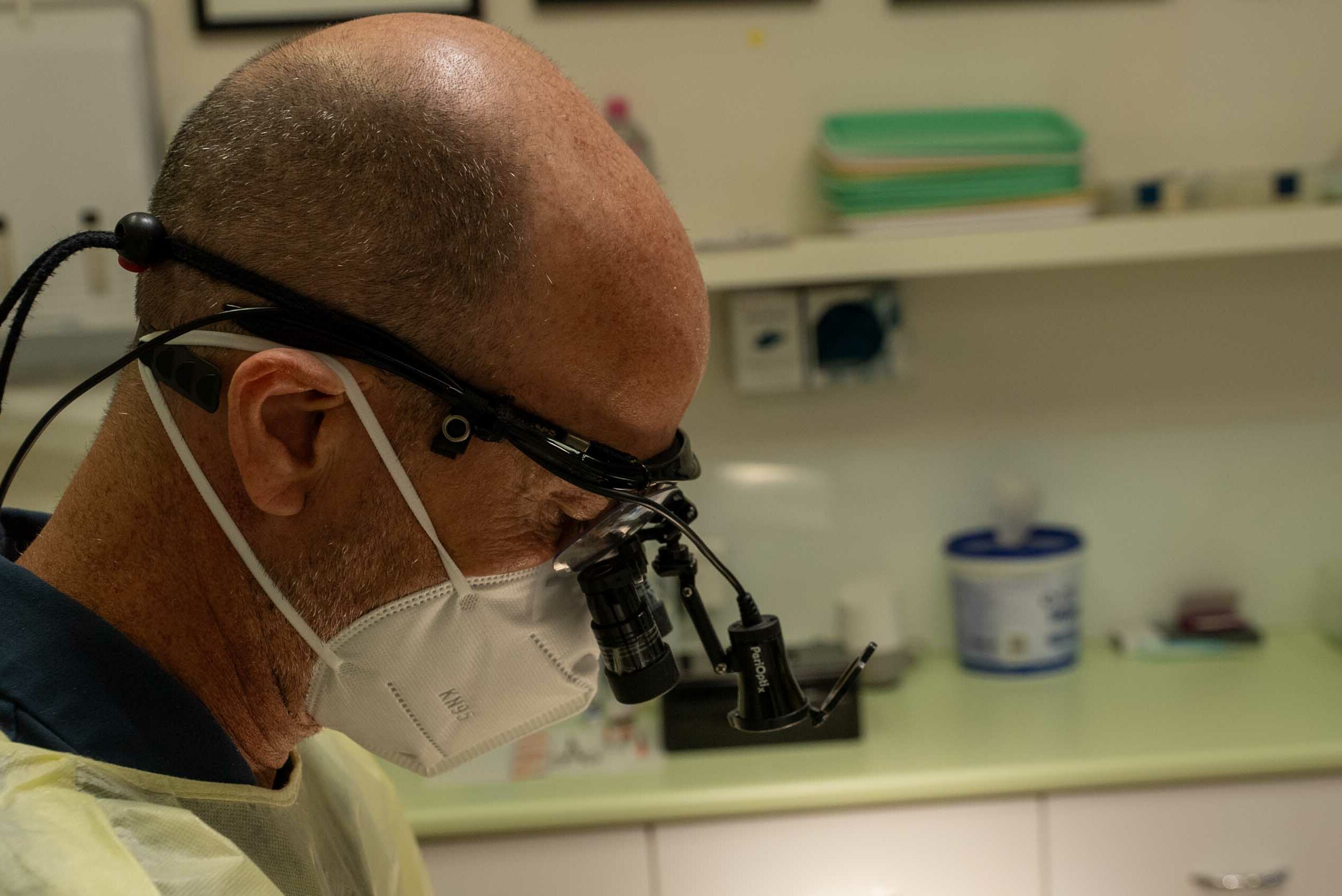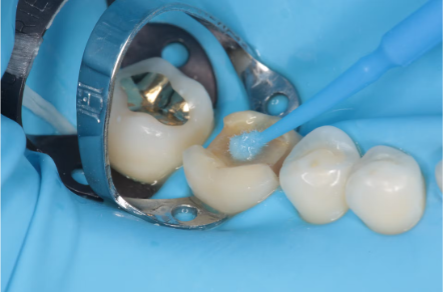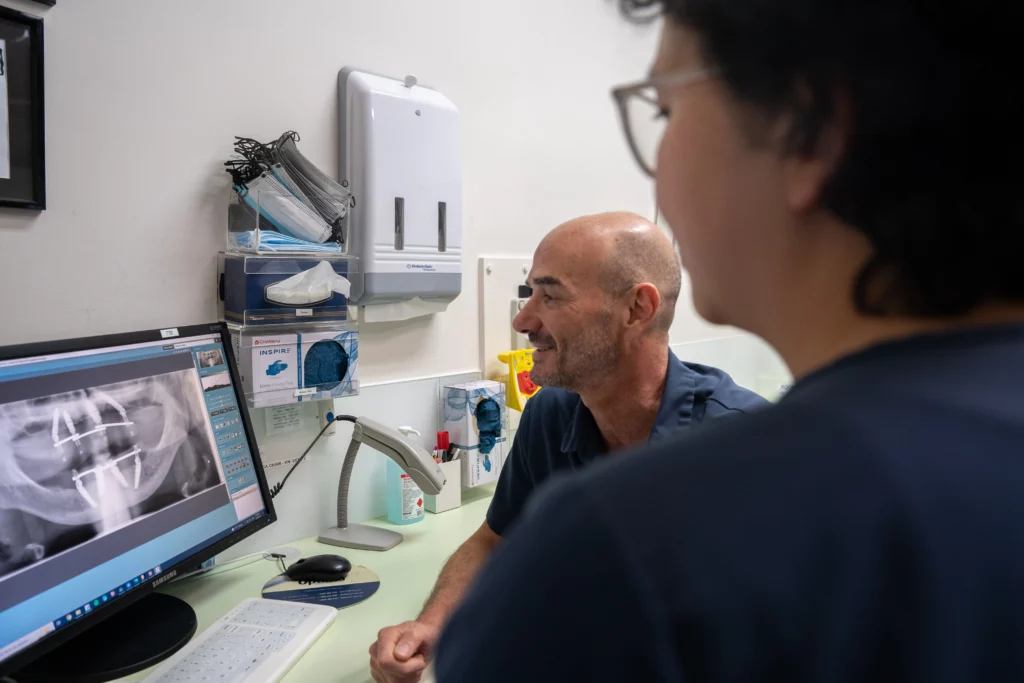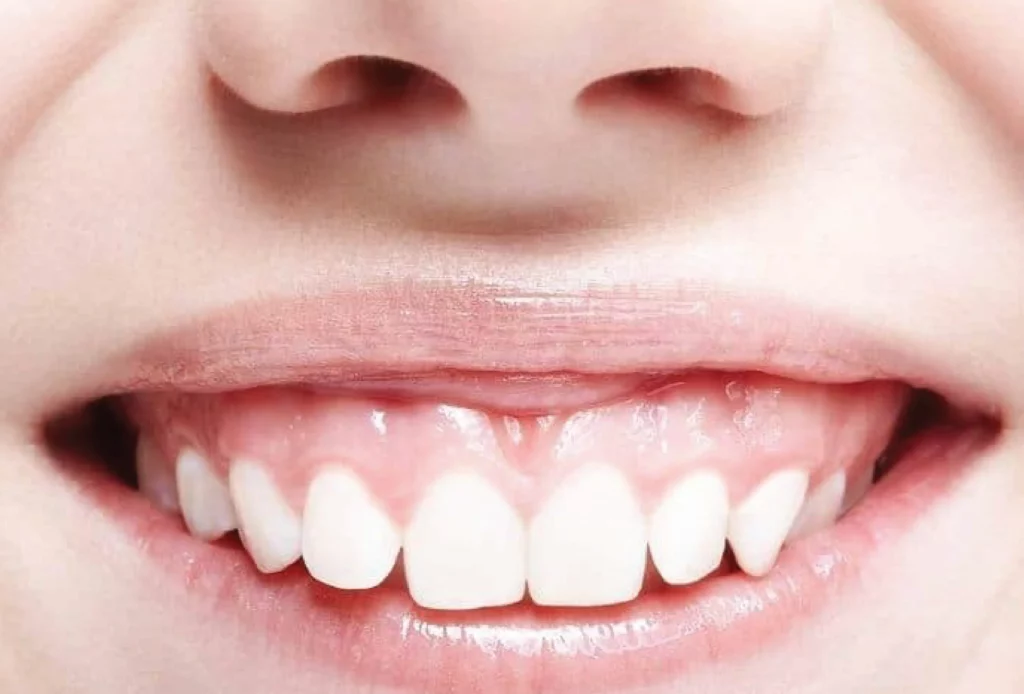Zygomatic implants are a welcome option for individuals who may have been advised they are ineligible for traditional implant treatment. Learn more about how they are able to help patients with missing upper teeth and have significant bone loss.
What are zygomatic implants?
Zygomatic implants, also referred to as zygoma implants, are longer than traditional implants and used for ‘remote anchorage’ in full mouth dental rehabilitation. They are used when there is massive bone loss or other upper jaw issues preventing the use of traditional implants. Zygomatic implants can be used to replace an entire upper arch of teeth in combination with other conventional implants. Four or more implants are usually required in full jaw rehabilitation. One to four Zygoma implants can be placed securely into the zygoma bone, commonly known as the cheekbone.
How do they work?
When teeth are missing in the jaw, the surrounding bone wears away, becoming lost over time. This can make it complicated to replace an arch of teeth, as full mouth implants require patients to have sufficient bone volume in their jaw. Zygomatic implants can help, as the implant posts extend past the jawbone and anchor in the zygoma instead. Using the zygomatic bone provides the necessary stability for the implant while also avoiding the need for bone grafting.
The zygomatic implant treatment process begins with scans of a patient’s mouth and 3D imaging technology. WIth this, our team carefully plans the placement of the implants, identifying the best positions to ensure stability and longevity. In a standard case with four implants being placed, two are typically placed in the middle of the upper jaw, while the other two are placed at approximately a 45 degree angle into the cheekbone. The angle ensures they avoid areas of low bone density and helps them securely support the full arch. All four implants may be placed into the zygoma if jaw bone volume and density is significantly reduced.
The zygomatic implants procedure is almost always completed under anaesthetic, with implants inserted into the bone through an incision in the gum. It is important to secure the new replacement teeth soon after surgery. The new teeth are usually attached to the implants within 24 to 48 hours.

Who can get zygomatic dental implants?
Zygoma implant treatment is appropriate for patients who would otherwise need lengthy bone grafting to receive full mouth implants. This level of bone loss can come from missing teeth, periodontal disease, jaw trauma, cancer or congenital conditions.
Zygomatic implants are often recommended to patients who have previously had one or more unsuccessful bone grafting procedures. They also work for patients who have had failed implants or been considered a poor candidate for traditional dental implants. Before committing to any treatment, a dentist will go through a detailed evaluation of a patient’s overall oral health. This will determine whether zygomatic implants are suitable.
Benefits of zygoma implants
Receiving zygomatic implants can be a significant change for a patient with most or all of their upper teeth missing. The treatment provides a series of important benefits, including:
- Stable Implant Support. The zygomatic bone provides a strong foundation for a replacement arch of teeth, particularly for patients with serious bone loss in their jaw.
- Quality of Life. Replacing missing teeth with implant supported teeth usually allows patients to eat, speak and smile with ease and without any worry, improving their overall day-to-day quality of life.
- Reduced Treatment Time. Zygomatic implants allow patients to bypass the need for bone grafting, meaning they can receive their full set of replacement teeth with a reduced number of dentist appointments and time in the chair. Some patients can be treated and restored within a week of your first consultation appointment.
Risks
In all procedures, we strive to ensure the highest level of safety for our patients and to provide lasting treatment. However, there are always some risks associated with surgical procedures. Zygomatic implants share many of the same risks of full mouth implant treatment, including infection and/or implant failure, where the implants struggle to fuse with the existing bone. However, there is a minimal risk of either of these issues occurring.
In addition, zygomatic implants also run the risk of causing sinus complications due to their placement in the cheekbone. However, this is also unlikely when the procedure is being performed by an experienced dentist. Prior to any work being done, your dentist will explain all possible risks and how to manage your aftercare period.
How much do zygomatic implants cost?
The cost of zygomatic implants varies with each different case, depending on the complexity of the surgery required and the overall number of implant posts to be used. While often more expensive upfront than other replacement options, zygomatic implants are more cost-effective as they avoid lengthy expensive grafting treatments prior to definitive implant treatment . Our team will be able to provide a comprehensive breakdown of your zygomatic implants cost.

How long do zygomatic implants last?
Zygomatic implants are typically a long lasting replacement option with proper aftercare, including regularly visiting the dentist for a check up to identify and prevent any complications. Your dentist will also provide a comprehensive list of post-surgery care instructions to ensure your implants heal well. This involves following a soft diet for the first couple of months following surgery and using over-the-counter pain medication.
Unfortunately, while the implants should last a lifetime with proper care, the replacement teeth will wear over time, though following daily oral hygiene practices will help them to last. Depending on the rate of wear, the ‘teeth’ part of the arch may be able to be replaced in a day, with the old teeth removed in a morning appointment and the new teeth reinserted in the afternoon using the same titanium bar — a bit like having a new tyre replaced on your car wheel when it wears down.
Zygomatic implants at CDIC
Zygomatic implants are an excellent option for patients with missing teeth who have lost significant bone in their upper jaw and for those people who have been told by their dentist or implant surgeon they don’t have enough bone. Dr Hillel New, one of Australia’s formative dentists trained in the early 2000s on the All On 4 and other full mouth treatments, is experienced and confident with the procedures involved, and committed to supporting patients on their smile journeys. Get in touch to book a consultation and find out how we can help you recover your smile.



